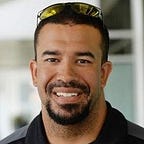Wireless Telecom — A solution for Emergency Situations
Natural disasters like hurricanes and earthquakes always leave catastrophic damage in their wake. Having a reliable network in emergency situations like this becomes very important for many people when they need to communicate with the government, rescue teams, and other entities regarding rescue efforts, including the need for supplies and medical attention.
When it comes to telecommunications, people have depended mostly on wired networks. Cable and fiber networks are prone to damages when these natural disasters strike, already straining systems that are overloaded and adding to corrosion issues copper networks face.
Even a small storm or flood can render wired network useless. People lose the use of communications equipment in emergency situations that they would otherwise have relied upon for making contact with rescue teams. It is also important to note that natural disasters very often strike without any prior warning and this is why choosing a functional and resilient telecommunications network during an emergency situation is critical.
In 2005, Hurricane Katrina swept through the southern central coast of the US causing $125 billion in damages. For many weeks, countless people were left stranded and without hope as their line of communications were cut off due to the catastrophic damages caused by this devastating hurricane. Why did they lose their ability to communicate so quickly? Because Telecommunications / Internet relied solely on cable or copper wire networks which were largely destroyed during the onset of Katrina.
That disaster marked one of the greatest turning points in telecommunications in the US, when many companies shifted their focus to 4G LTE. The reasons behind this shift were that wireless networks, are resilient in emergency situations. People can still keep in touch with law enforcement, rescue and other government bodies to ensure their safety. Emergency Response Teams are able to locate impacted communities to help them relatively quickly.
Horizon Communications, a company specializing LTE wireless communications, is working to deliver high-speed and reliable wireless internet service to Bermuda, the Caribbean, and Central America. These regions are prone to natural disasters and they usually suffer high levels of damage from sometimes unexpected and devastating natural phenomena. In areas affected by previous disasters, a subsequent installation of a wireless LTE network has proven to be very effective in re-establishing telecommunication services quickly for emergency services in particular.
Horizon Communications is ready to build a wireless network and provide extremely functional high-speed LTE services as a solution for keeping the population safe when disaster strikes. The company sees its mission as providing reliable telecommunications services where and when they are needed most.
Gilbert A Darrell is the Founder of Horizon. He has 18 years experience in information technology and telecom solutions, a veteran in Fire and EMS Services, a crypto enthusiast and a member of the Bermuda Government’s Cryptocurrency Task Force.
Horizon Communications is an upcoming fixed wireless internet service provider looking to provide services in Bermuda, the Caribbean and Central America before expanding internationally. While utilizing 4th generation and soon 5th generation wireless technology, it will also heavily incorporate blockchain and cryptocurrency technology, one of the 1st ISP’s in the world to do so, while launching an Initial Coin Offering (ICO) as a part of their capital raise and blockchain integration. More information can be found on their website — www.HorizonComm.co
